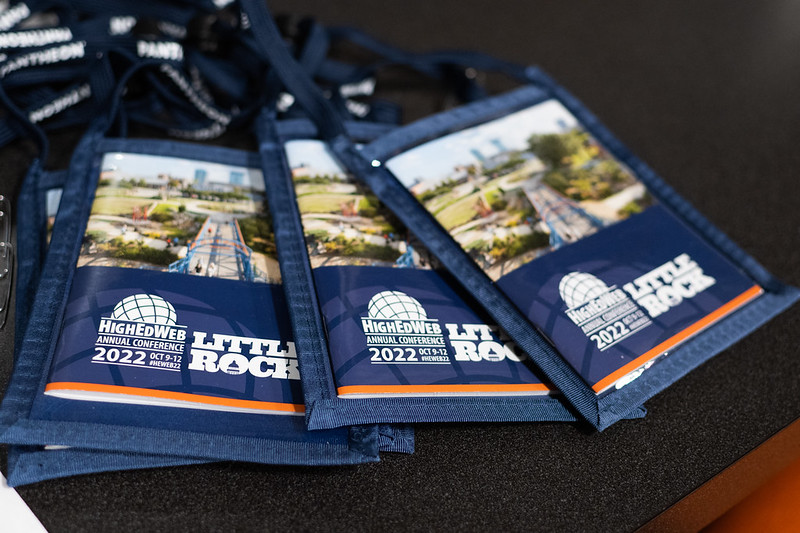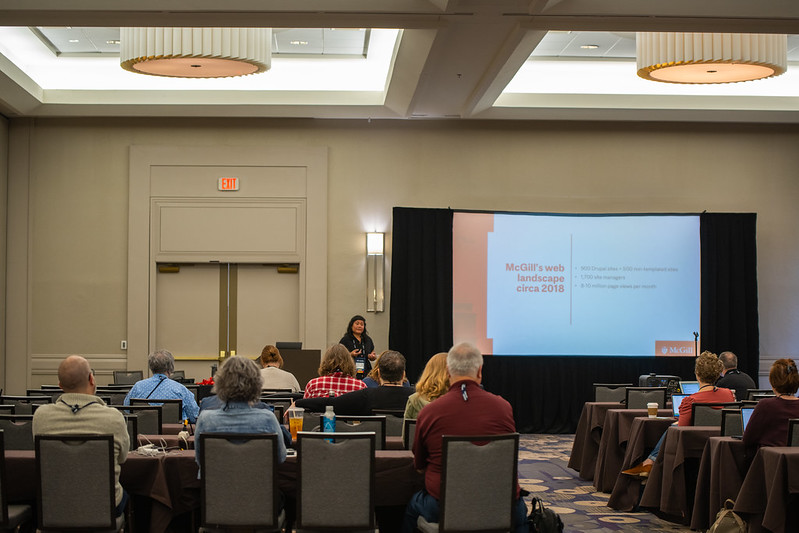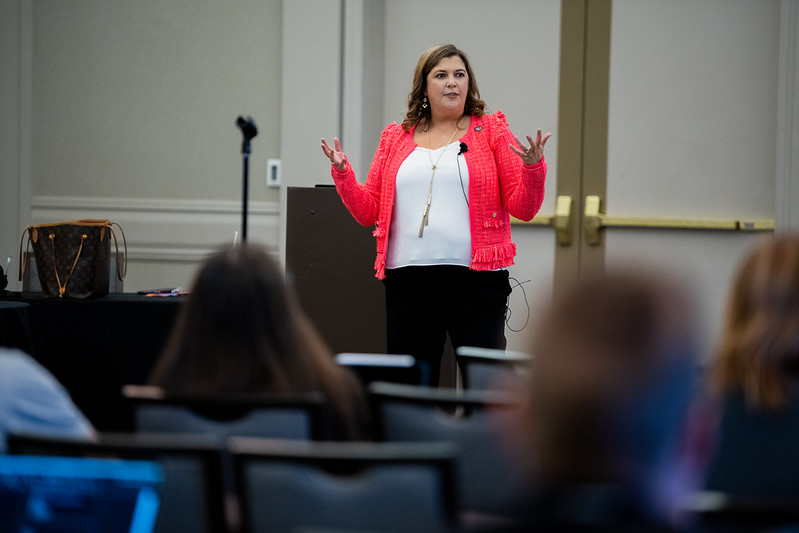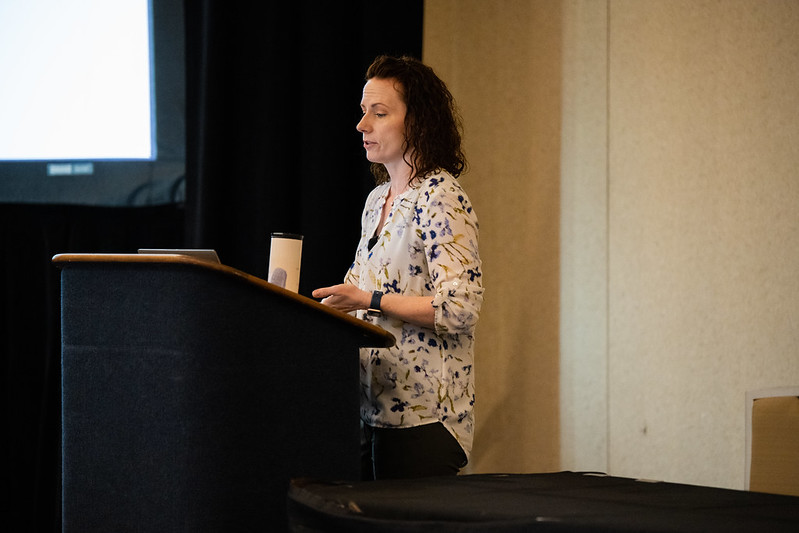I had an incredible experience attending the Higher Education Web Professionals Association (HighEdWeb) Annual Conference last week. I thoroughly enjoyed the presentations, meeting so many new people working in the same field, and even the city of Little Rock, Arkansas. The HighEdWeb team did a great job organizing the conference and social events (even the food was delicious), so props to them! 👏
Here are my top takeaways:
#HighEdWeb22
1️⃣ We are hired as the experts; stay confident.
And sometimes, being a confident expert in the field means saying no. If someone comes to you with an idea or problem, you should always start by hearing them out. But ultimately, we are the experts. It is important to be assertive. Colleagues will take you more seriously if your words and actions have conviction. Present options or alternatives, and be sure always to explain your reasoning. Your effectiveness as a leader is directly related to your perceived authority as an expert in your field.
Carrie Phillips from the University of Arkansas at Little Rock presented “15 Lessons Learned from a New Manager” and made a great point. She said you must “be decisive when your team needs a decision and ask for grace if the decision is not the best.” Sometimes we may get things wrong. But it is important to remain confident in our decisions and learn from our mistakes.
2️⃣ Website content should be engaging and easy to read. No one ever complains that text is too easy to understand.
I attended one of the award presentations called “Your Web Copy Sucks and It’s All Your Fault! Writing Effective and Engaging Content” from Amy Cole at the University of Arkansas System Division of Agriculture Cooperative Extension Service, where she talked about editing web copy to engage visitors. I left with three main points:
- Identify and write for your audience. This means writing your content so the audience can understand it the first time they read or hear it. It is not only essential for comprehension, but it is also respectful of the reader’s time. All they want is to get to the point!
- Write in an active voice. Writing in an active voice puts the reader in the moment, generates a stronger connection to actions, and makes content easier to read.
- Break up text with headings. Writing for the web is different than other forms of writing. It is important to break up content into shorter, bite-size pieces that are easier to remember. Often people come to your website to get an answer to a specific question. They scan the page, looking for sections that will benefit them. Strategically designing with headings in mind is essential to writing for the web.
3️⃣ Informed decisions should be made with data, not just gut feelings.
I attended a lot of presentations that focused on data and analytics. It is essential to use data to drive website and social media performance. To get started making decisions with data, you must begin with a strategic audit. You should know where you are going and the intention of what you are trying to do with your sites. It all starts with the why. Once you know the goal, you should perform a user audit and have conversations with your end users. These two things (strategy and audience) should be the driving force of your website or social media accounts. Once you know this information, you can start collecting and diving into the analytics to help understand what is and isn’t working.
The Utah State University web team graciously shared their Google Data Studio template for web analytics. It is a great dashboard to see key analytics in a visually appealing way!
Overall, I enjoyed my first in-person professional conference. Although it was essentially geared toward overall university marketing, communications, and IT teams, I left with a few takeaways and some great connections. I look forward to attending my next conference!






